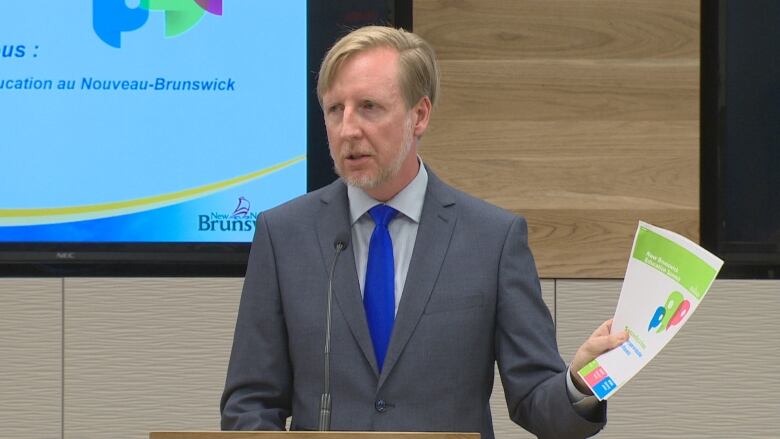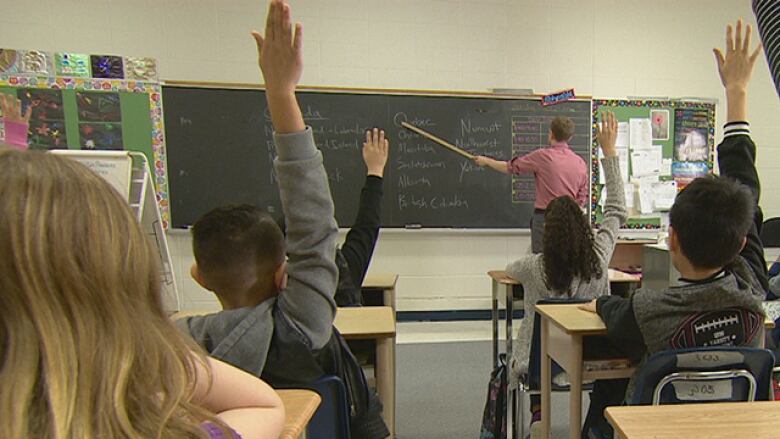Math and literacy scores drop in latest student assessments
Success rate for Grade 9 reading assessment drops seven percentage points from previous year

Math and literacy assessment results took a dip during the last school year, according to provincial assessment results released on Friday.
"We've got lots of work to do," said Dominic Cardy, the minister of education.
"Part of the problem with these tests is the numbers sort of go up and down."
In anglophone schools, Grade 9 reading assessments had the biggest drop in success rates, with 73.6 per cent of students successful in the assessment, down from 80.1 per cent the year before.

The dropputs the percentage of successful students at the lowest level since 2012.
Overall, New Brunswick places seventh in provincial literacy scores across the country.
Math was also a struggle during the last school year. Among Grade 10 anglophone students, 62.8 per cent were successful, compared with65.1 the previous year.
The province used the word successful to describe students whose scores were reported as either "appropriate," the largest category, or "strong."
The report said there wasn't much change for francophone students' results.
Cardy said the planned changes outlined in the green paper on education reforms released in early October would make a difference in the province's results.
"I believe those will have a marked, immediate effect in some cases," said Cardy.
Cardy said people wouldn't see those results until 2021, since any changes would come into effect in September 2020.
Proposals in the green paper include eliminating age-based grade levels, increased use of artificial intelligence, partnerships with the private sector, and second-language programing in daycares.
"We've seen in the schools where they've introduced, for example, flexible learning groups, when they've introduced project-based learning, all of these ideas are generating results right now," said Cardy.
"There's ideas in the green paper that are going to help with classroom composition, and that's the whole reason I wrote the green paper in the first place."












_(720p).jpg)


 OFFICIAL HD MUSIC VIDEO.jpg)
.jpg)



























































































